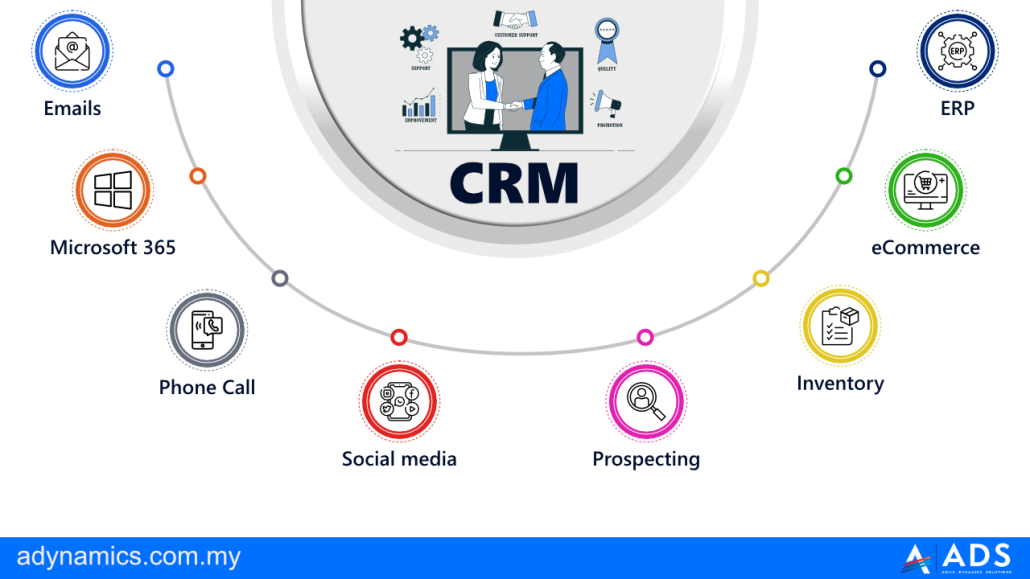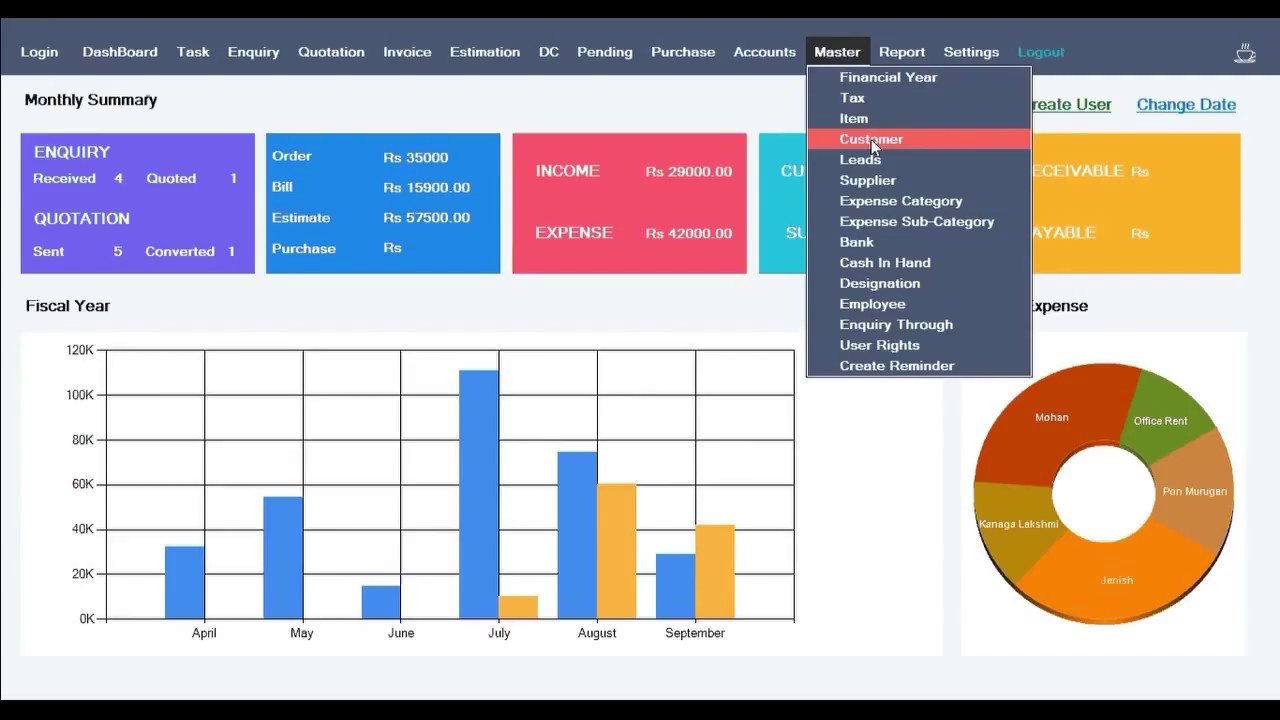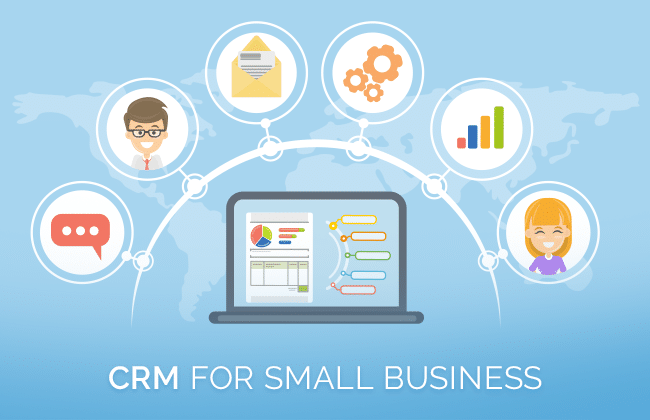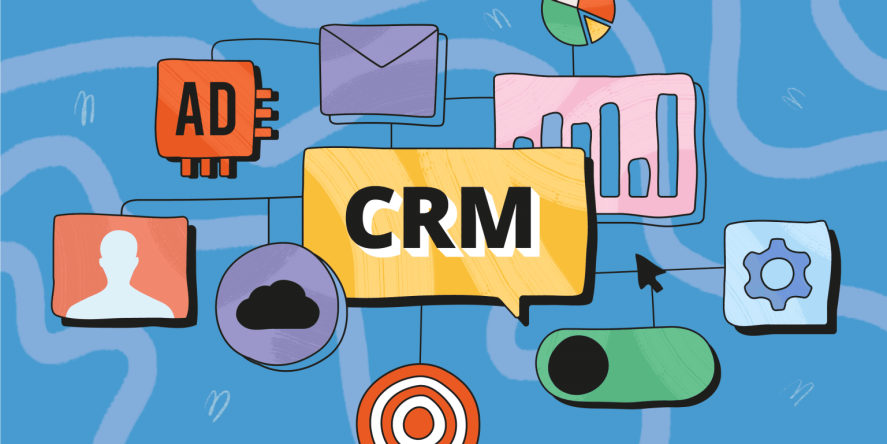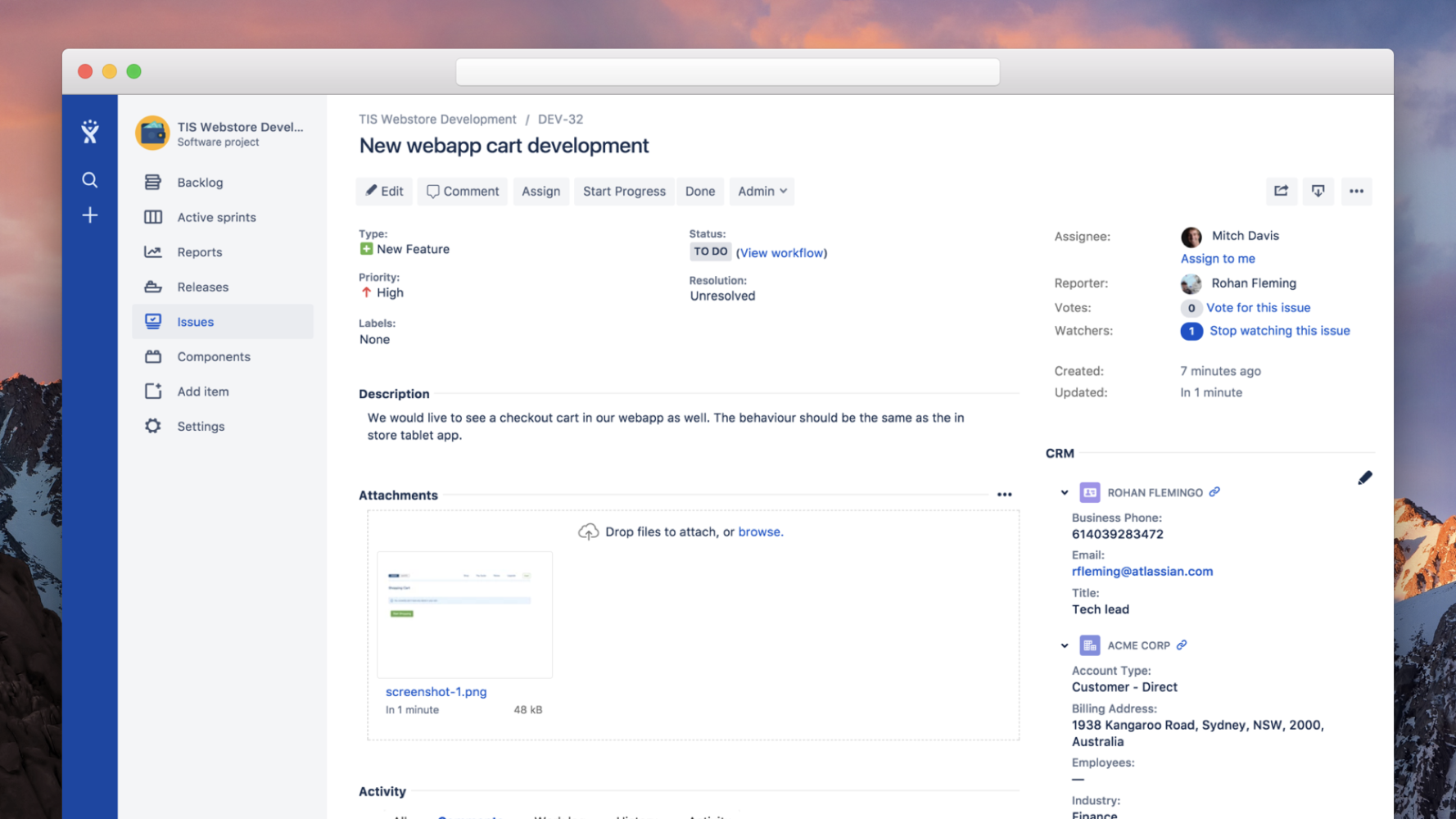Unlocking Growth: The Ultimate CRM Guide for Small Online Stores
Unlocking Growth: The Ultimate CRM Guide for Small Online Stores
Starting and running a small online store is a thrilling adventure. You’re the CEO, the marketing team, the customer service rep, and often, the shipping department all rolled into one. In the whirlwind of product listings, social media campaigns, and order fulfillment, it’s easy to feel overwhelmed. That’s where a Customer Relationship Management (CRM) system steps in, becoming your secret weapon to organize, understand, and ultimately, grow your business. This comprehensive guide delves into the best CRM options tailor-made for small online stores, helping you choose the perfect fit to streamline operations and boost sales.
Why Does Your Small Online Store Need a CRM?
Before diving into the specifics, let’s address the elephant in the room: Why do you, as a small business owner, even need a CRM? The answer is simple: it’s about building lasting relationships with your customers. In the digital age, where competition is fierce and customer loyalty is paramount, a CRM is no longer a luxury; it’s a necessity.
Think about it: when you’re juggling multiple hats, it’s easy for customer details to get lost in the shuffle. Emails might get buried, preferences forgotten, and opportunities for upselling or cross-selling missed. A CRM solves these problems by:
- Centralizing Customer Data: All customer interactions, purchase history, and preferences are stored in one accessible location.
- Improving Customer Service: Armed with detailed customer information, your team can provide personalized, efficient support.
- Boosting Sales: CRM tools enable you to identify sales opportunities, nurture leads, and close deals more effectively.
- Streamlining Marketing: Segment your audience, personalize your marketing campaigns, and track their performance.
- Enhancing Business Intelligence: Gain insights into customer behavior, sales trends, and overall business performance.
Key Features to Look for in a CRM for Small Online Stores
Not all CRMs are created equal. The best CRM for your online store will depend on your specific needs and budget. However, several key features are essential for any small business:
1. Contact Management
This is the bread and butter of any CRM. It allows you to store and organize customer contact information, including names, email addresses, phone numbers, and social media profiles. Look for a CRM that allows you to easily add, edit, and search for contacts. You should also be able to segment your contacts based on various criteria, such as purchase history, demographics, or engagement level.
2. Sales Pipeline Management
If you’re actively pursuing leads and closing deals, a sales pipeline is a must-have. It visually represents the stages of your sales process, from lead generation to closing the sale. This feature helps you track deals, identify bottlenecks, and forecast sales. The best CRMs offer customizable sales pipelines that align with your unique sales process.
3. Email Marketing Integration
Email marketing is a powerful tool for online stores. Look for a CRM that integrates seamlessly with your email marketing platform (e.g., Mailchimp, Constant Contact, or Klaviyo). This integration enables you to:
- Send targeted email campaigns based on customer segments.
- Track email open rates, click-through rates, and conversions.
- Automate email sequences, such as welcome emails, abandoned cart reminders, and follow-up emails.
4. E-commerce Integration
This is a critical feature for online stores. Your CRM should integrate with your e-commerce platform (e.g., Shopify, WooCommerce, or BigCommerce) to:
- Automatically import customer and order data.
- Track customer purchase history and behavior.
- Trigger automated actions based on customer actions (e.g., sending a thank-you email after a purchase).
- Provide personalized product recommendations.
5. Reporting and Analytics
Data is your friend. A good CRM provides insightful reports and analytics to track your sales performance, customer engagement, and marketing effectiveness. Look for features like:
- Sales dashboards.
- Customer segmentation reports.
- Marketing campaign performance reports.
- Conversion rate tracking.
6. Automation
Automation can save you countless hours and streamline your workflows. Look for a CRM that allows you to automate repetitive tasks, such as:
- Sending welcome emails.
- Following up with leads.
- Sending abandoned cart reminders.
- Assigning tasks to team members.
7. Mobile Accessibility
In today’s fast-paced world, you need to be able to access your CRM on the go. Look for a CRM with a mobile app or a responsive web design that works well on mobile devices. This allows you to stay connected with your customers and manage your business from anywhere.
8. Integrations
Your CRM should integrate with other tools you use, such as:
- Email marketing platforms.
- E-commerce platforms.
- Social media platforms.
- Accounting software.
- Help desk software.
Top CRM Systems for Small Online Stores
Now, let’s explore some of the best CRM systems tailored for small online stores. Each option has its own strengths and weaknesses, so consider your specific needs when making your choice.
1. HubSpot CRM
Best for: Free CRM with powerful features for small businesses and startups.
HubSpot CRM is a popular choice, especially for its generous free plan. It offers a comprehensive suite of features, including contact management, sales pipeline management, email marketing integration, and reporting. While the free version is robust, HubSpot also offers paid plans with advanced features like marketing automation and custom reporting.
Pros:
- Free plan with a wide range of features.
- User-friendly interface.
- Excellent integration with other HubSpot tools (e.g., marketing, sales, and service hubs).
- Good for lead generation and nurturing.
Cons:
- Limited features in the free plan.
- Can be overwhelming for beginners due to the number of features.
- Advanced features can be expensive.
2. Zoho CRM
Best for: Budget-friendly CRM with extensive customization options.
Zoho CRM is a versatile and affordable option, known for its customization capabilities. It offers a free plan for up to three users, as well as various paid plans with advanced features. Zoho CRM integrates well with other Zoho apps, as well as third-party applications like G Suite and Microsoft Office 365.
Pros:
- Affordable pricing plans.
- Highly customizable.
- Good for sales force automation.
- Offers a free plan for small teams.
Cons:
- Can be complex to set up and customize.
- The user interface can feel dated.
- Customer support can be slow at times.
3. Freshsales (by Freshworks)
Best for: Sales-focused CRM with built-in phone and email capabilities.
Freshsales is a sales-centric CRM designed to help businesses close deals faster. It offers built-in phone, email, and chat features, making it easy for sales teams to communicate with leads and customers. Freshsales integrates well with other Freshworks products, as well as popular third-party apps.
Pros:
- Focus on sales and lead management.
- Built-in phone, email, and chat.
- User-friendly interface.
- Good for sales team collaboration.
Cons:
- Less emphasis on marketing automation compared to other CRMs.
- Can be expensive for larger teams.
- Limited free plan features.
4. Pipedrive
Best for: Sales-focused CRM with a visually appealing and intuitive interface.
Pipedrive is a sales-focused CRM known for its user-friendly interface and visual sales pipeline. It’s designed to help sales teams manage their deals, track progress, and close more sales. Pipedrive integrates with a variety of third-party apps, including email marketing platforms and e-commerce platforms.
Pros:
- Visually appealing and intuitive interface.
- Focus on sales pipeline management.
- Easy to use and set up.
- Integrates with many popular apps.
Cons:
- Limited features in the lower-priced plans.
- Less emphasis on marketing automation.
- No free plan.
5. Agile CRM
Best for: All-in-one CRM with marketing automation and sales features.
Agile CRM is a comprehensive CRM solution that combines sales, marketing, and customer service features in a single platform. It offers a free plan for up to 10 users, as well as affordable paid plans with advanced features. Agile CRM integrates with a wide range of third-party apps and offers a user-friendly interface.
Pros:
- All-in-one CRM with sales, marketing, and customer service features.
- Free plan for up to 10 users.
- User-friendly interface.
- Good for small businesses looking for a complete CRM solution.
Cons:
- Can be overwhelming for beginners due to the number of features.
- The user interface can feel cluttered.
- Customer support could be improved.
6. Keap (formerly Infusionsoft)
Best for: CRM with advanced marketing automation capabilities.
Keap is a powerful CRM designed for small businesses that need robust marketing automation features. It offers advanced features like email marketing, lead scoring, and sales automation. Keap is a good choice for businesses that want to automate their sales and marketing processes.
Pros:
- Powerful marketing automation features.
- Good for lead nurturing and sales automation.
- Integrates with many popular apps.
- Good for businesses that are growing and scaling.
Cons:
- Can be expensive.
- Steeper learning curve.
- Not as user-friendly as some other CRMs.
7. EngageBay
Best for: All-in-one CRM with marketing, sales, and service automation features.
EngageBay offers a comprehensive suite of features, including a CRM, marketing automation, sales automation, and a help desk. It’s a good choice for small businesses that want an all-in-one solution to manage their sales, marketing, and customer service efforts. EngageBay offers a free plan and affordable paid plans.
Pros:
- All-in-one solution with sales, marketing, and service features.
- Free plan available.
- User-friendly interface.
- Good for small businesses looking for a complete solution.
Cons:
- Can be overwhelming for beginners.
- Limited features in the free plan.
- Customer support could be improved.
Choosing the Right CRM: A Step-by-Step Guide
Selecting the right CRM can feel like navigating a maze. Here’s a step-by-step guide to help you make the right decision:
1. Assess Your Needs
Before you start comparing CRM systems, take a close look at your business. What are your current pain points? What areas of your business need improvement? Consider the following questions:
- What are your primary goals for using a CRM? (e.g., increase sales, improve customer service, streamline marketing).
- What are your current sales and marketing processes?
- What are your current challenges in managing customer relationships?
- What features are essential for your business? (e.g., contact management, sales pipeline, email marketing integration, e-commerce integration).
- How many users will need access to the CRM?
- What is your budget?
2. Research CRM Options
Once you have a clear understanding of your needs, it’s time to research different CRM options. Read reviews, compare features, and explore pricing plans. Consider the following:
- Ease of Use: Is the CRM user-friendly and easy to learn?
- Features: Does the CRM offer the features you need?
- Integrations: Does the CRM integrate with your existing tools and platforms?
- Pricing: Is the CRM affordable and does it fit your budget?
- Customer Support: Does the CRM offer good customer support?
3. Try Free Trials or Demos
Most CRM providers offer free trials or demos. Take advantage of these opportunities to test out the software and see if it’s a good fit for your business. This will allow you to get hands-on experience with the CRM and evaluate its features and functionality.
4. Consider Your E-commerce Platform
If you run an online store, make sure the CRM you choose integrates seamlessly with your e-commerce platform (e.g., Shopify, WooCommerce, BigCommerce). This integration is crucial for automatically importing customer and order data, tracking purchase history, and triggering automated actions based on customer behavior.
5. Evaluate Customer Support
Choose a CRM provider that offers excellent customer support. You’ll likely need help with setup, training, and troubleshooting. Look for providers that offer multiple support channels, such as email, phone, and live chat.
6. Factor in Scalability
Choose a CRM that can grow with your business. As your online store expands, you’ll need a CRM that can handle increased data volumes, more users, and more complex features. Consider the pricing plans and features offered by the CRM provider and whether they will meet your needs as your business evolves.
7. Make Your Decision
After evaluating your needs, researching CRM options, and testing out free trials, it’s time to make your decision. Choose the CRM that best fits your needs, budget, and technical capabilities. Remember that the best CRM is the one that you will actually use and that helps you achieve your business goals.
Implementing Your CRM: A Smooth Transition
Choosing a CRM is just the first step. Successfully implementing it is crucial for maximizing its benefits. Here’s how to ensure a smooth transition:
1. Data Migration
If you’re already using a system to manage customer data (e.g., spreadsheets, email clients), you’ll need to migrate that data to your new CRM. This can be a time-consuming process, so plan accordingly. Most CRMs offer data import tools to help you transfer your data seamlessly. Make sure to clean up your data before importing it to avoid duplicates and errors.
2. Training Your Team
Provide adequate training to your team members on how to use the CRM. This will ensure that they are comfortable with the software and can effectively use its features. Offer training sessions, create user guides, and provide ongoing support to answer any questions.
3. Customize the CRM
Most CRMs offer customization options. Tailor the CRM to fit your specific business needs. This may involve creating custom fields, setting up automated workflows, and configuring integrations. Take the time to customize the CRM to maximize its value.
4. Set Clear Goals and KPIs
Establish clear goals and key performance indicators (KPIs) to track the success of your CRM implementation. This will help you measure the impact of the CRM on your business and identify areas for improvement. Regularly review your KPIs and make adjustments as needed.
5. Integrate and Test
Ensure that the CRM integrates seamlessly with your existing tools and platforms. Test the integrations to ensure that data is flowing correctly and that automated workflows are functioning as expected. Troubleshoot any issues and make necessary adjustments.
6. Get Feedback and Iterate
Gather feedback from your team members on their experience using the CRM. Use this feedback to identify areas for improvement and make adjustments to the CRM configuration. Regularly review the CRM’s performance and make updates as needed to ensure it continues to meet your business needs.
Beyond the Basics: Advanced CRM Strategies for Online Stores
Once you’ve mastered the basics, you can leverage advanced CRM strategies to further enhance your customer relationships and boost sales.
1. Customer Segmentation
Divide your customer base into segments based on demographics, purchase history, behavior, and other criteria. This enables you to personalize your marketing messages, offer targeted promotions, and improve customer engagement.
2. Lead Scoring
Assign scores to your leads based on their engagement with your website, email campaigns, and other interactions. This helps you prioritize your leads and focus your sales efforts on the most promising prospects.
3. Marketing Automation
Use marketing automation to streamline your marketing efforts. Automate tasks such as sending welcome emails, nurturing leads, and sending abandoned cart reminders. This will save you time and improve your marketing effectiveness.
4. Personalized Customer Experiences
Use the data in your CRM to personalize the customer experience. This includes personalizing website content, product recommendations, and email messages. Personalized experiences can significantly improve customer engagement and drive sales.
5. Customer Journey Mapping
Map out the customer journey from the first touchpoint to the purchase and beyond. Identify key touchpoints and optimize the customer experience at each stage. This will help you improve customer satisfaction and increase customer lifetime value.
6. Loyalty Programs
Integrate a loyalty program with your CRM to reward your loyal customers. Offer points, discounts, or other incentives to encourage repeat purchases and build customer loyalty.
7. A/B Testing
Use A/B testing to optimize your marketing campaigns and website content. Test different versions of your email messages, landing pages, and other elements to see which ones perform best. Use the data from your CRM to track the results of your A/B tests and make data-driven decisions.
The Future of CRM for Small Online Stores
The CRM landscape is constantly evolving. Here are some trends to watch out for:
- Artificial Intelligence (AI): AI-powered CRM tools are becoming increasingly sophisticated, offering features like predictive analytics, automated customer service, and personalized recommendations.
- Mobile-First CRM: CRM systems are increasingly designed with mobile users in mind, offering robust mobile apps and responsive web designs.
- Integration is Key: The ability to integrate with other tools and platforms will continue to be a critical factor in choosing a CRM.
- Focus on Customer Experience: CRM systems will increasingly focus on enhancing the customer experience, offering features like personalized content, proactive customer service, and omnichannel communication.
- Data Privacy and Security: With increasing concerns about data privacy, CRM providers will need to prioritize data security and comply with data privacy regulations.
Conclusion: Embrace the Power of CRM
Choosing the right CRM is a pivotal decision for the success of your small online store. By understanding your needs, researching the best options, and implementing your chosen CRM effectively, you can unlock a wealth of benefits, including improved customer relationships, increased sales, and streamlined operations. Don’t let the complexities of running an online business overwhelm you. Embrace the power of CRM and watch your business thrive. Take the time to explore the options, consider your specific requirements, and then get ready to transform your customer interactions and boost your bottom line. Your customers, and your business, will thank you.

